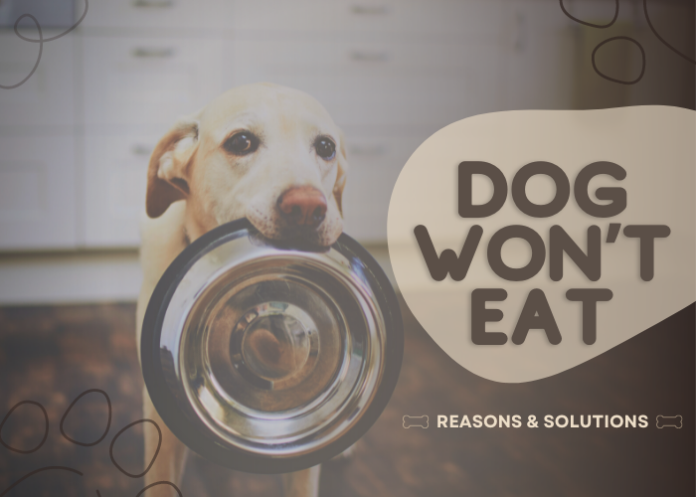My dog won’t eat and there is no obvious reason why. Many dog owners get worried as soon as their dogs start refusing food. However, the reasons are so varied that you have to carefully observe your dog before panicking.
Although this might sound strange since dogs love to eat, there are some dogs that get bored of eating the same food every day and they simply stop. In these cases, their owners just have to find tastier food for them in order to solve the problem.
Conversely, a dog might suffer from an emotional disorder that can take away its appetite, such as moving to another house, being left alone for too long, and so on. All these factors may affect a dog’s mealtime and it might try to attract attention by not eating.
Moreover, loss of appetite can also be a symptom of the disease. If the situation persists, the best option is to take it to the vet for a clinical exam and some tests. If this phase lasts for too long, it can lead to serious health problems. Apart from not eating, dogs affected by this will also have the tendency to sleep a lot due to loss of energy.
Possible Reasons for Dogs That Refuse Food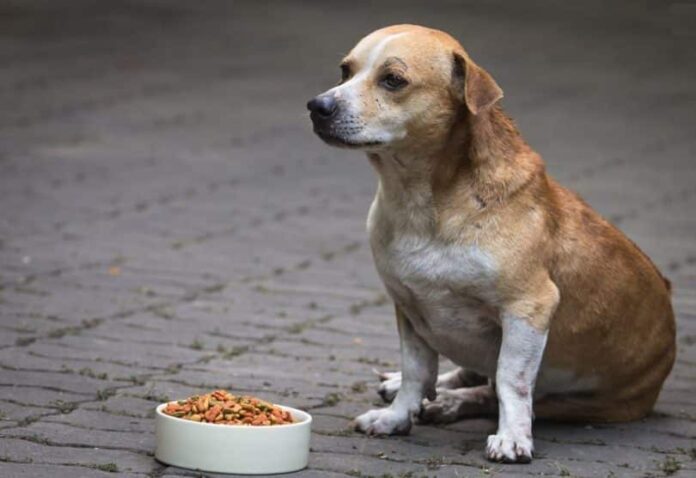
Physical discomfort with symptoms of depression or stress is enough to determine a dog not to eat. If the rejection of food is temporary and its lack of appetite reverses in a few hours, you don’t have to worry, but you should keep in mind that this episode might generate subsequent problems.
However, if your dog presents other symptoms besides refusing food and water, then it is necessary to take urgent measures in order to determine what is wrong with it. While not all cases of disinterest in food are a result of illness, it is advisable to consult a vet.
When you see your dog acting lifeless and when its food bowl stays intact for more than half a day, you should check its body for any signs of injury and also take its temperature.
When a dog is inactive and it seems sad, it might have behavioral reasons to act this way. Of course, it might also suffer from a physical disability that prevents it from moving normally. That is why you should make sure it is not injured or in pain.
Obviously, there are many other reasons why a dog would refuse food. You might say, “My dog won’t eat or drink”, but have you tried to be firm about it? In order to encourage your dog to eat and make it feel safe, you can stay with it while eating or you can offer it a tasty reward every time it takes a bite.
Changing its food is probably the first recommended step that you could take. Keep in mind to choose a balanced diet and add extra vitamins if necessary. This is a matter that might not be good to try to solve alone.
Behavioral Reasons
The behavioral reasons for this issue are not too serious, but they still have to be solved. In general, anorexia in dogs lasts for one day during which they seem healthy.
If instead the dogs appear to be healthy, but their lack of appetite persists for more than one day, there may be an additional medical reason too. Among the behavioral reasons are:
- Stress linked to new owners or a new living environment. A dog that changes homes or is adopted might refuse to eat until it accommodates
- Stress that occurs when going in new places or on vacation
- A new addition to the family, such as a baby or a new pet
- Stress when a dog is housed in a kennel
- Stress when a dog is left in the house of another caregiver when its owners go on vacation
- Boredom because of eating the same thing every day
Medical Reasons
The medical reasons are usually serious, so dogs should receive immediate attention from a veterinarian. Some dogs get anorexia, but not eating for more than 24 hours is not acceptable.
A dog can live 3 days without eating, but you should take it to the vet after one day. A doctor can intervene with intravenous aid. However, waiting for too long will make it impossible for a vet to save an ill dog. Among the medical reasons are:
- Digestive problems: Examples are diarrhea and vomiting
- Liver diseases: Among these diseases, we can count cirrhosis and chronic hepatitis. The latter is not similar to the one in humans and it is not contagious either
- Blood diseases: Anemia and blood loss are the most common reasons for this category, but there are also situations when the dog suffers from a stomach ulcers.
- Infections: Different bacterial or viral infections.
- Respiratory diseases: Asthma and the Kennel cough are 2 of the respiratory diseases that could affect a dog’s appetite. It loses its ability to smell what it is about to eat, so it loses interest.
- Other medical reasons: The list may continue with dental or periodontal diseases, pancreatitis, kidney failure, inflammatory bowel syndrome, urinary tract infection, constipation, severe worm infestation, Addison’s disease, and pain due to injury.
Specific Reasons for Dogs That Don’t Eat
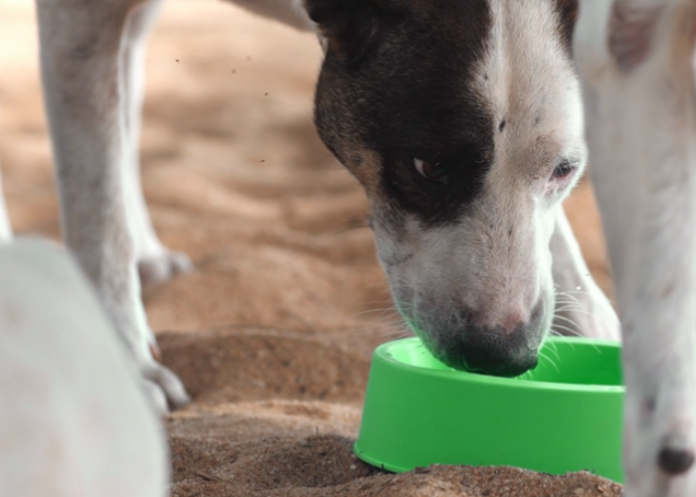
1. Anorexia in Dogs
Anorexia in dogs occurs when a pooch’s part of the brain that is responsible for its appetite cannot be activated. A physical disorder might influence a dog’s appetite radically to the point of not eating or not feeling like eating at all. Aging and head injuries are factors that can trigger anorexia in dogs.
However, bowel obstruction and severe symptoms of stress may also result in anorexia. Unlike in humans, cases of anorexic dogs are rare, even if they might go through situations that cause them anxiety and fear as often as humans do.
This is not a negligible issue even if it is not life threatening and it is usually curable.
2. Sick or Injured Dogs
If your dog is sick or injured, then it might be in so much pain that it cannot eat. In addition, you might have lost a tooth that you don’t know about, so check this aspect as well. A tooth loss can cause a loss of appetite.
Also, as a result of changing your dog’s food, it might have an adverse reaction and start vomiting all it eats, ending up stopping eventually. In such a case, the classic solution is not to feed it for 24 hours and then to put it back on its normal diet. Fresh water must always be at your dog’s disposal. You should change it every 4 hours and make sure it isn’t too cold.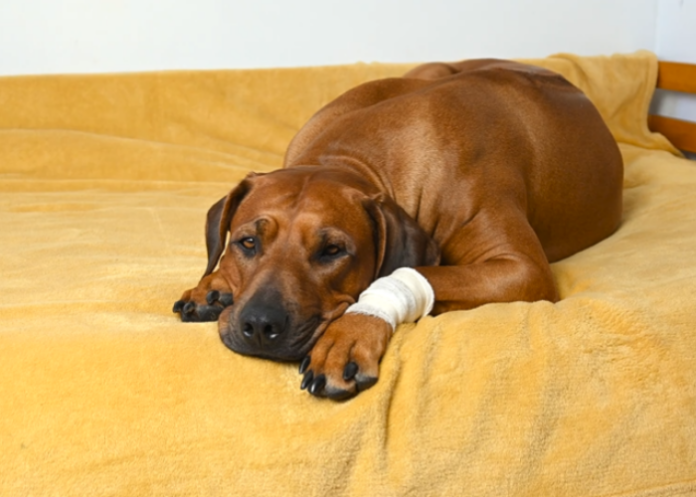
3. Dogs That Are in Heat
Dogs that are in heat tend to forget to eat or they simply lose interest for food temporarily. Because of all the physical changes that take place inside a dog’s body when it is in heat, it is simply too preoccupied about finding a partner in order to reproduce instead of attending its regular meals. Of course, this should not happen to dogs that were sterilized or castrated.
The hormonal changes are no longer a possible reason. If your dog is in heat, do not worry about its appetite. It will be naturally restored in a matter of days. However, make sure to at least keep it hydrated.
4. Dogs That Are Older
Adult dogs that are older have less appetite than younger dogs. This is a normal thing to happen because as they grow old, their level of activity decreases and their physical necessities are no longer the same. A dog that gets older might start eating once per day instead of 3 times per day as it used to.
Also, it might not be as active as before and it might seem sad sometimes. In order to be sure age is the reason, you should take it to the vet. The similarity between the medical symptoms and these symptoms is worrying.
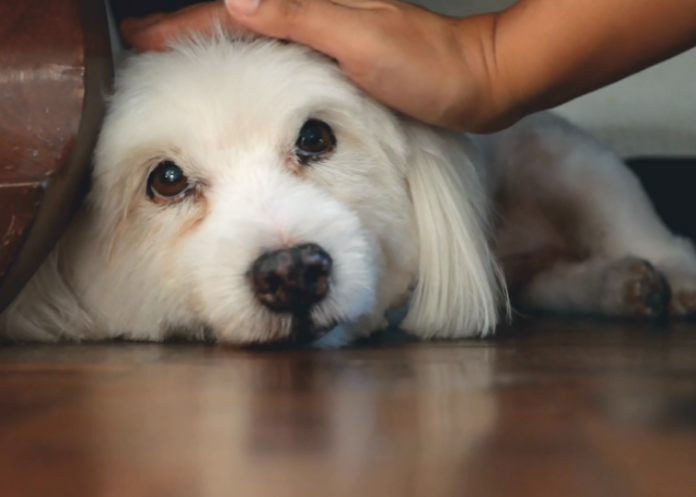
5. Digestive Tract Obstruction in Dogs
This may be the worst case of all, though it is less common. If your dog has swallowed a ball, a sock or a large piece of wood, it might be stuck somewhere in its digestive tract. Its stomach or its intestines might be obstructed by such an object.
Therefore, its transit is blocked because it cannot function properly, so a dog cannot eat and it is also constipated. If this is the case, only a specialist can take care of the problem. Surgery is sometimes the only option to solve this type of obstruction, but it really depends on its severity.
6. Boredom in Dogs
The most common reason why a dog stops eating is boredom. If we ate the same meal every day, we would most definitely end up disgusted and stopped eating in no time. The same applies to dogs that might get bored after weeks, months or even years of eating the same food.
This is a completely normal reaction and it can be handled by finding another type of food that has a different smell and a different taste compared with the initial one. In addition, there are a few tricks that you can use to determine a stubborn dog to eat.
Trick Your Dog to Eat
1. Find the Right Flavor
Sometimes, the easiest way to determine your dog to eat again is to buy another type of food that it likes better. For example, you could buy more types of food in small quantities and let your dog pick. Some people don’t care if the dog likes its food as long as they consider it good enough for the dog.
Moreover, if your dog has never been very enthusiastic about its food, try giving it different foods. You could even try to combine its regular food with a new kind in order to make its transition easier. If that doesn’t work, then you can alternate between the 2 kinds of food and avoid boredom in this way.
2. Human Food is Not for Dogs
Once a dog tastes human food, it might not want to go back to their regular food. A pork chop smells better and it tastes better than any dog dry food, but it is not good for the dog’s health.
Giving leftovers to a dog is not a good option for its health. Human food does not provide the nutrients a dog needs and despite that it contains salt and other spices that are strictly prohibited. A dog’s digestion might have to suffer if it ingests something its stomach is not used with.
In case your dog is too used with eating your food, then the solution is to combine it with dog food. At the beginning, the proportion has to be 80% human food and 20% dog food and increase proportionally in time.
3. Establish an Eating Schedule
A dog that has its food bowl full all the time might stop eating because it knows that food will always be there and it could eat later. However, it might have little interest in that food and eventually not eat it at all.
In order to determine your dog to eat, you should only leave the food bowl for a half an hour at its disposal. Then, you should take it away, thus teaching it that it does not have unlimited time to eat and if it is hungry, it should proceed when you offer it food, not when it pleases.
4. Prepare Interesting Meals
In order to make your dog curious about the food it has in its bowl, you could mix canned food with dry food. Moreover, you could alternate between these 2 types of food by serving one type in the morning and another type for dinner.
The food’s smell has much to do with its charm, especially for dogs that have a developed sense of smell. Dry food smells less, while canned food has a strong smell. Canned foods containing meat, fish and cereals are more aromatic than others. Make experiments and observe which combination is the most successful for your dog!
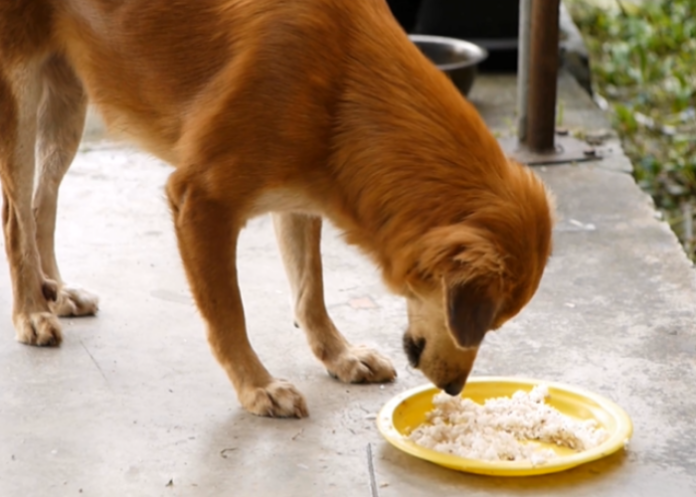
5. Administer Appetite Stimulants
A veterinarian can prescribe a few appetite stimulants for your dog if he or she concludes that there is nothing else wrong with your dog medically speaking. Supplements such as Omega 3 are known to be beneficial in case of appetite loss.
Also, salmon oil is known to make food more appealing for dogs. A teaspoon of salmon oil added to dog food could make wonders. There is no recipe that works for every dog, so you will have to try multiple solutions until you find the one that best suits your dog’s needs during critical moments like appetite loss.
Critical Situations That Need Immediate Care
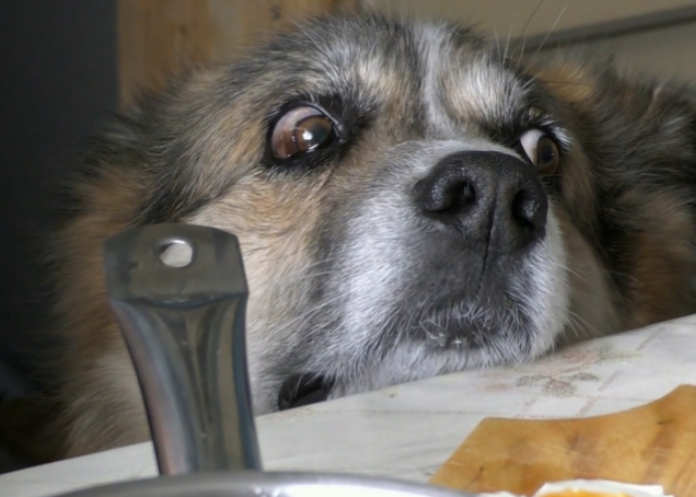
As seen, for most dogs there is a critical period of 3 days when you can try different tricks to feed them, but there are some cases when you have to act immediately. These cases are:
- Your dog loses more than 10% of its weight
- Your dog has recently undergone surgery
- Your dog suffers from nausea or diarrhea
- Your dog has an infection, fever or has suffered a trauma
- Your dog needs antibiotics or has a chronic disease
- Your dog has a form of cancer
Dogs that eat very little could also die of starvation in approximately 10 days. A dog’s body is not that strong as it looks. If it doesn’t receive the needed nutrients for an extended period of time, its immune system might get weaker and its organs might not function properly.
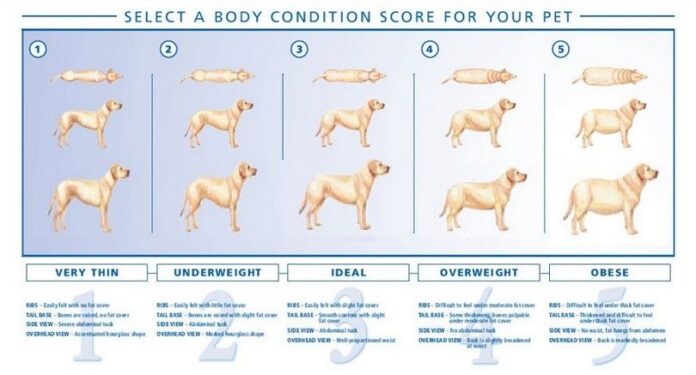
Do not wait until your dog is visibly weaker and it barely moves. Take action before the situation aggravates. There are times when you can’t do anything but take your dog to the vet.
Appetite Loss Conclusions for Dogs
As with almost any other affection, appetite loss is not something that should worry you from the start. However, it is something that you should observe closely and that you should try to fix by doing what you can from the tricks presented above and anything else you can think of. It is very important to know when the situation gets out of control and when it becomes mandatory to go see the vet.
Fortunately, there are ways a dog can be fed intravenously, so the vet can definitely save a dog that is dehydrated and hasn’t eaten in days. Moreover, the vet can also identify what exactly is wrong with your dog.
In case it has emotional issues, then you should be honest with the vet regarding your home situation and what exactly might have determined your dog to react in this way. In this case honesty might be an indicator of the factor that determined appetite loss, so do not hold back any information.
If your dog is already sick, then you should do whatever you can in order to comfort it and ensure all the conditions it needs to get better.
